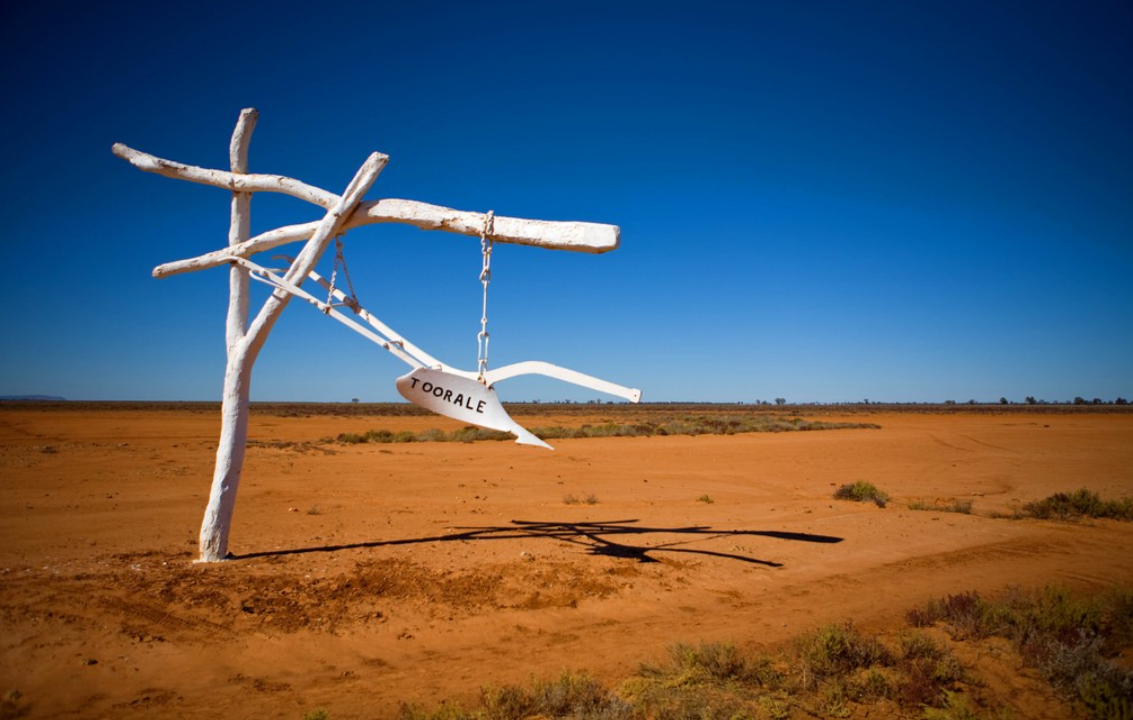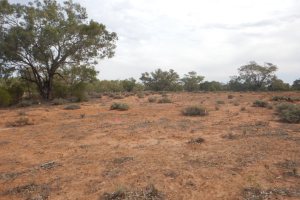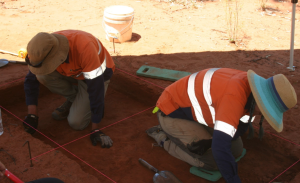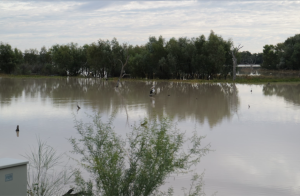Heritage services, Toorale Water Infrastructure Project

Client: Department of Planning and Environment (DPE)
Location: West of Bourke, NSW
Services provided
- Aboriginal Cultural Heritage Assessment
- Archaeological survey
- Archaeological test excavations
- Archaeological community collection and salvage
- Aboriginal Heritage Impact Permit (AHIP)
- AHIP post works reports
- Aboriginal Cultural Heritage Management Plan
- Aboriginal Cumulative Assessment report
- Aboriginal Cultural Heritage Compliance report
- Aboriginal heritage inductions
- Aboriginal heritage monitoring
- Artefact reburial
Background
Biosis was engaged by the Department of Planning and Environment (DPE) to undertake an Aboriginal cultural heritage assessment and archaeological investigation for the Toorale Water Infrastructure Project.
Located at Toorale National Park and State Conservation Area in NSW, the infrastructure project would enable the improved management of flow events in the lower Warrego River for proposed environmental outcomes. The primary objective of the project is to return water flow to the Darling River and re-establish connectivity between the Warrego and Darling Rivers and their floodplains.
There is extensive evidence of Aboriginal occupation and activity across Toorale, including over 800 known sites such as artefact scatters, quarries, modified trees, earth ovens, middens, stone arrangements, burials and contact sites. At the beginning of the assessment process, 791 Aboriginal sites were located within the study area and a significantly higher number of unrecorded sites are likely to be located at Toorale.
Outcome
The new structures allow for greater flexibility to meet the water needs of the environment and, in certain circumstances, downstream communities. The proposed operating rules will prioritise flows to the Darling River when conditions are critically dry, while supporting floodplain values during higher sustained flows in the Warrego River or when the Darling River is flowing well. Furthermore, the new fishways will be operated to support fish movement between the Warrego and Darling Rivers during all flows.
Members of the Toorale Joint Management Committee (JMC), as well as other members of the Kurnu-Baakandji community, have been actively engaged, usually through paid work, in the planning and design of the project and in the assessment of Aboriginal cultural heritage values on Toorale. The Kurnu-Baakandji people have provided valuable insights and advice that has helped to ensure that the project not only respects the past and present cultural values, but also sets up Toorale to meet future aspirations held by Kurnu-Baakandji people.
The project has responded to the significant Aboriginal heritage of Toorale and the wishes of the JMC by:
- Modifying the design of the Homestead Dam fishway to ensure that it does not impact on the cultural heritage values and is blends in with the surrounding landscape of the area.
- Repairing Homestead Dam, where the JMC has a culture camp and aspirations for future cultural heritage education and tourism programs.
- Maintaining flows to the western floodplain to protect the important cultural and environmental values it supports.
- Providing paid employment and community training opportunities before, during and after construction of works.
- Siting works to avoid and minimise impacts to cultural heritage.
- Ongoing monitoring of the impacts of changed flow management arrangements on cultural heritage.
The improvement of water flows for environmental and cultural purposes through the project has resulted in the restoration of a landscape that respects and supports the past and ongoing connection of the Kurnu-Baakandji people to Country. A statement from the 2019 Australian Archaeological Association conference from Kurnu-Baakandji elder Badger Bates read: “When they take the water from a Baakandji person, they take our blood. They’re killing us… our elders are giving up and dying. Then our young people are committing suicide and it’s hurting, because of the river”. One of the major outcomes of this project is that it provides access to Country for the practice, renewal and creation of tradition, customs and cultural activities including teaching children culture, holding culture camps, repatriations and involving Aboriginal people in decision-making about how Country is managed.



